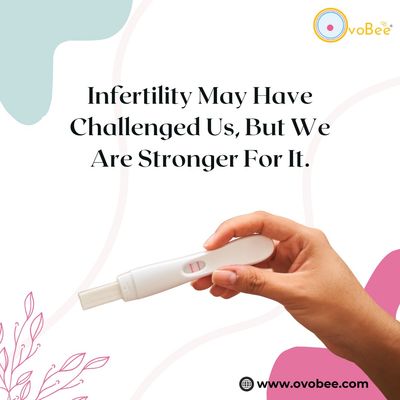How Stress Impacts Fertility: Tips to Break the Cycle
The relationship between mental health and fertility is often misunderstood. While psychological stress doesn’t directly cause infertility, navigating infertility can significantly impact mental well-being. Let’s explore both sides of this connection and provide strategies to manage stress and emotional challenges during your fertility journey.
The Myths and Realities of Mental Health and Fertility
The positive news is that mental health issues do not cause infertility. Despite a recent study indicating that over 70% of women believe mental health problems can negatively impact fertility, there’s no scientific evidence to support this claim. Even when your menstrual cycle is temporarily disrupted by physical or emotional stress—such as rigorous exercise or overworking—this disruption is typically short-lived and self-correcting.
Fertility challenges are usually linked to factors like age, underlying medical conditions, or behaviours that may temporarily interfere with conception. So, if you’re struggling with infertility, know that it’s not your fault.
However, the downside is that while stress doesn’t cause infertility, the emotional toll of infertility can lead to increased stress, anxiety, and depression. Research shows that infertility can significantly heighten mental health challenges for both women and men. In some cases, experiences like recurrent pregnancy loss (RPL) may even result in symptoms of post-traumatic stress disorder (PTSD).
Practical Tips for Managing Stress During Fertility Challenges
Here are some actionable strategies to help you manage the emotional strain of infertility and prioritize your mental well-being:
1. Evaluate Your Mental Health
Watch out for signs of emotional overload, including:
o Disorganization: Losing track of simple things, like a pen, and feeling frustrated when they turn up right in front of you.
o Difficulty Making Decisions: Struggling with small choices, like picking what to eat for lunch.
o Dependency: Feeling the need for others to take over responsibilities you previously managed with ease.
If any of these resonate with you, it’s a signal to make your mental health a priority.
2. Stay Present
Dwelling on past regrets or worrying about future uncertainties only adds to your stress. Focus on the present moment—this is where you have the power to make decisions that can reduce anxiety and stress.
3. Invest in Self-Care
Treat yourself with the same care and kindness you offer to loved ones. Prioritize sleep, exercise, personal time, and social connections. Cultivate a habit of being your own best friend.
4. Encourage Positive Self-Talk
Remind yourself that there are always options to build a family. Hearing this from others may not help but affirming it to yourself can lift your mood and provide hope.
5. Reach Out for Support
While you may hesitate to discuss infertility with others, isolation can amplify stress. Consider joining support groups through OvoBee or your preferred fertility clinic. Sharing your feelings with a trusted community can make emotions more
manageable.
6. Find Refuge in Work
Work can be a welcome distraction from the anxiety of fertility treatments. Staying engaged in professional or personal projects can boost your self-esteem and provide a sense of accomplishment.
7. Reframe Your Thoughts
Cognitive restructuring—changing how you think about situations—can improve your outlook. Instead of focusing on hopelessness, choose to embrace hope. This mindset can lead to proactive behaviours that foster positive outcomes, creating a self-fulfilling cycle of success.
8. Monitor for Depression
Symptoms of depression can range from mild fatigue and sadness to more severe issues like frequent crying, loss of appetite, or a sense of despair. If you notice these signs, seek help promptly. Depression linked to infertility may stem from hormonal therapies, treatment failures, financial stress, or relationship strain. Speak with your physician about therapy, support groups, or medication. Taking a break from treatment might also provide relief.
Take Control of Your Emotional Well-Being
While you may not have control over the physical aspects of infertility, you can actively manage how you respond to the emotional challenges. Your thoughts and actions significantly influence your feelings. By choosing strategies that reinforce your sense of control, you can better navigate the stress of this journey.
At OvoBee, our integrated Wellness Team offers counselling, crisis intervention, and therapy sessions for individuals and couples. Don’t wait until stress becomes overwhelming—make your mental health a priority. Schedule a session today and take the first step toward emotional resilience on your fertility journey.









